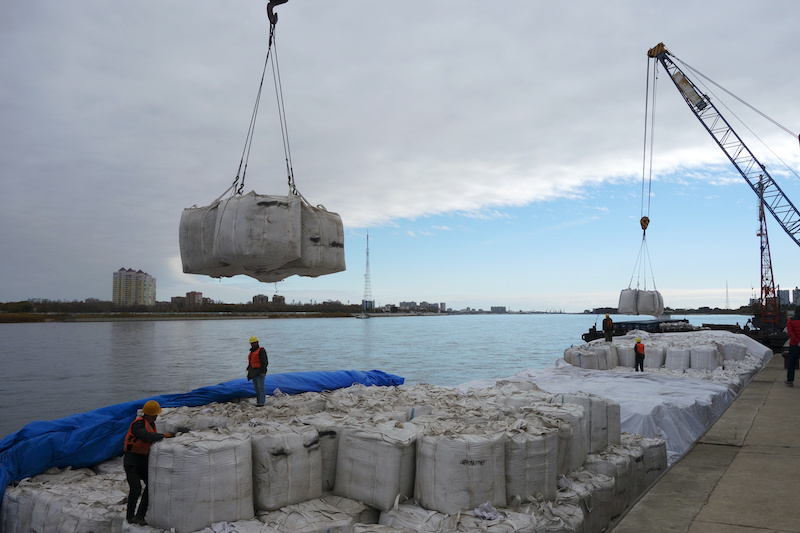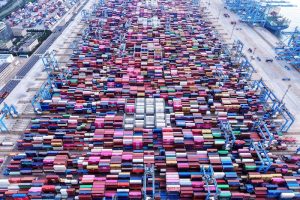China’s exports and imports fell to their lowest levels in more than two years, shrinking at a much steeper-than-expected pace in November, official data showed on Wednesday.
The world’s second-largest economy was under strain due to weak global and domestic demand, manufacturing disruptions brought on by Covid, and a downturn in real estate prices at home.
Exports fell by 8.7% from a year earlier in November, well below analysts’ expectations for a 3.5% decline. This was a larger decline than the 0.3% loss in October, and their worst performance since February 2020.
Also on AF: Covid Concerns Add to Apple’s Need to Diversify Out of China
Outbound shipments have lost steam since August as surging inflation, sweeping interest rate increases across many countries and the Ukraine crisis have pushed the global economy into the brink of recession.
Exports are likely to shrink further over coming quarters, Julian Evans-Pritchard, senior China Economist at Capital Economics, said in a note to clients.
“Outbound shipments will receive a limited boost from the easing of (China’s) virus restrictions, which are no longer a major constraint on the ability of manufacturers to meet orders,” he said.
“Of much greater consequence will be the downturn in global demand for Chinese goods due to the reversal in pandemic-era demand and the coming global recession.”
Domestic demand key
The widespread Covid curbs hurt importers too.
Inbound shipments were down sharply by 10.6% from a 0.7% drop in October, weaker than a forecast 6.0% decline. The downturn was the worst since May 2020, partly also reflecting a high year-earlier base for comparison.
Trade surplus shrank to $69.84 billion from $85.15 billion in October and was at its lowest level since April, when Shanghai was placed on lockdown. Analysts had predicted a $78.1 billion surplus.
Overall, the bleak data also underlined the impact of fresh Covid restrictions across many Chinese cities including manufacturing hubs Zhengzhou and Guangzhou as infections spiked last month.
Apple supplier Foxconn said that revenue in November dropped 11.4% year-on-year, after production problems related to Covid controls at the world’s biggest iPhone factory in Zhengzhou.
Beijing has responded to the weakening economic growth by rolling out a flurry of policy measures over recent months, including cutting the amount of cash that banks must hold as reserves and loosening financing curbs to rescue the property sector.
But analysts remain sceptical the steps could achieve quick results, as Beijing has not announced a full reopening from Covid containment yet.
“The shift away from zero-Covid and step up in support for the property sector will eventually drive a recovery in domestic demand but probably not until the second half of next year,” Evans-Pritchard said.
Zhiwei Zhang, chief economist at Pinpoint Asset Management, also cautioned about China’s “bumpy reopening” process.
“As global demand weakens in 2023, China will have to rely more on domestic demand,” he said.
- Reuters, with additional editing by Vishakha Saxena
Read more:
Foxconn Says Covid-Hit China iPhone Plant Back on Track
Beijing Ready For ‘Life Again’ as Lockdowns Lift Across China
China Softens its Warnings on Severity of Covid-19 After Protests
China 2023 Earnings Forecasts Lifted by Reopening Boost Hopes
























